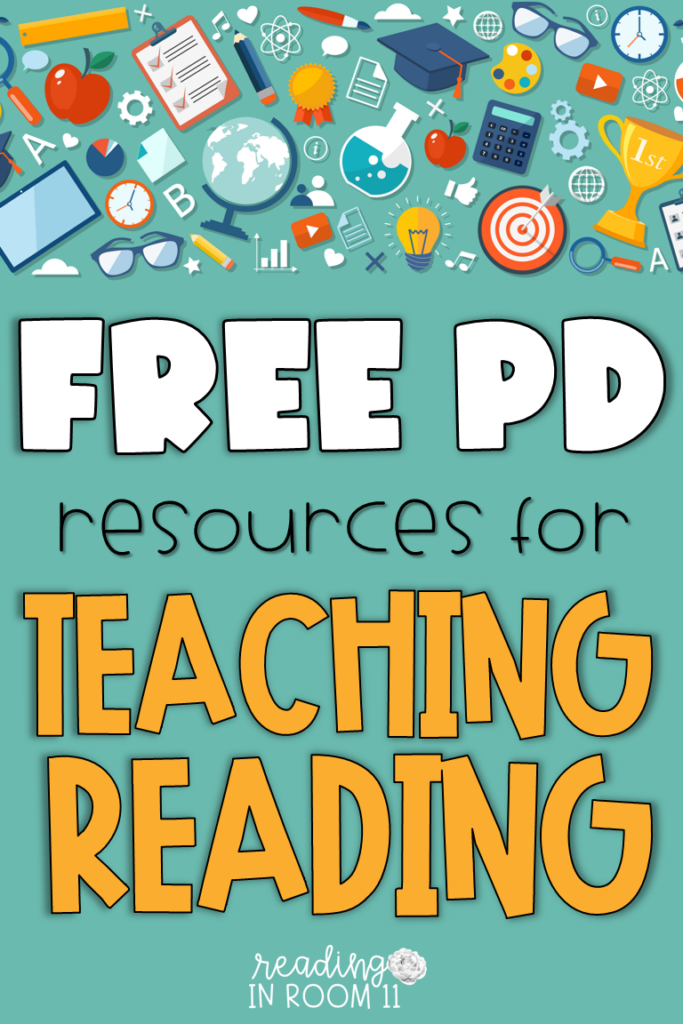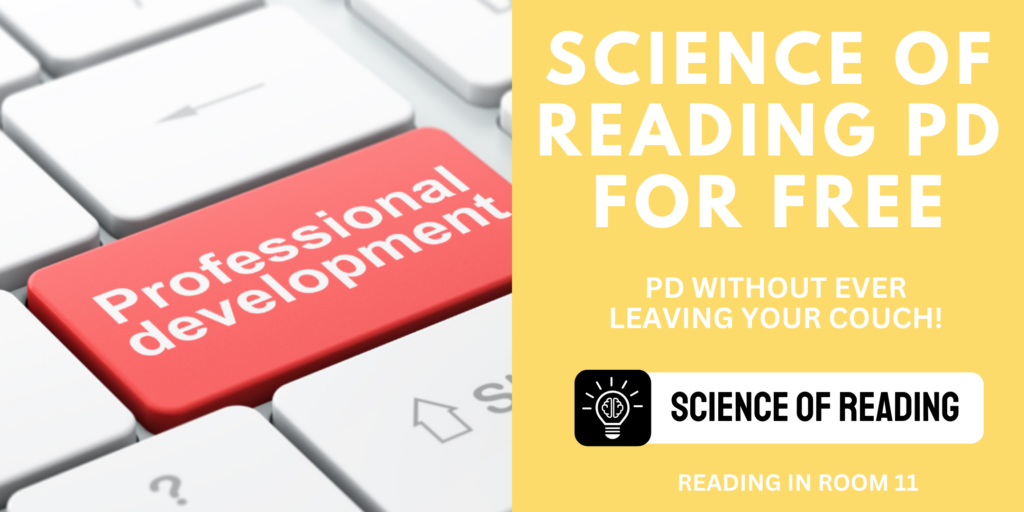Are you a teacher looking for free research-based science of reading professional development ? Not only do I have three excellent research-based professional development resources for you to enhance your reading instruction – they are absolutely free and you don’t even have to get off your couch! These resources have genuinely transformed my mindset and how I approach teaching reading, and I hope they can help you too!
Amplify: Learning to Read: A Primer| Part One and Two
Last summer, I received professional development that introduced me to Amplify’s Learning to Read: A Primer| Part One and Part Two. Both resources are short and user-friendly. Primer 1 “takes you through why we learn to read, how students learn to read, and why English, in particular, is so difficult to learn,” and Primer 2 “looks at the role prior knowledge plays in improving reading comprehension and specific strategies that will lead to student success.”
After reading each Primer, we were asked to write down 2-3 THINGS that stuck with us before sharing with a friend, but no one at my table could stop at 3, and our conversation was electric! The primers were an easy read and contained some mind-blowing facts!

This really stuck with me:
“Think of reading as a suitcase that requires two keys to open it. The first key is a word-level decoding skill that becomes automatic and fluent. The second key is language, vocabulary, domain-specific knowledge, and the micro comprehension skills to build a good mental model.
“When schools focus heavily on one key or the other, the suitcase doesn’t open—reading comprehension is delayed. But you can be confident that good readers will emerge when you work diligently with both keys.”“
Excerpts from p.48 Learning to Read: A Primer Part 2 by the Center for Early Learning (Amplify)

You can access free PDFs of these books or purchase physical copies from Amplify’s website. Here are the links:
The Reading League
Over the last few years, The Reading League has become a professional development powerhouse in New York. Their mission is to build educator knowledge of how to teach reading using evidence-based, highly effective instruction and assessment methods.
I have attended The Reading League’s Conference and several events, and the information continually blows my mind! The events cover best research-based reading practices, assessments, and interventions. I always leave inspired with ideas I can start implementing immediately.
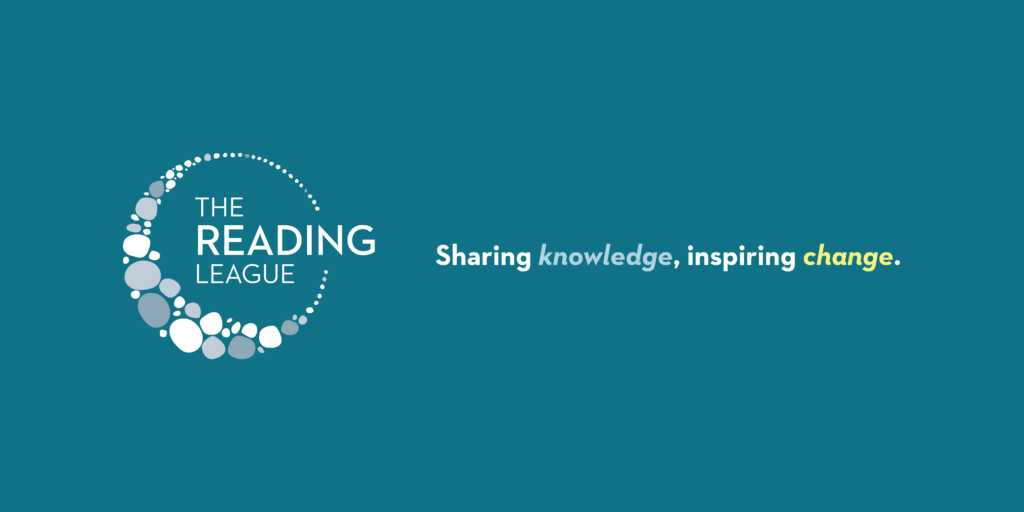
Don’t live in New York? NO PROBLEM! Chapters across the United States are growing rapidly and they have a comprehensive website. One of the best things about The Reading League is that they have a YouTube Channel where you will find videos of their live professional development events from start to finish!
There is a page on their site called the Knowledge Base that offers more excellent resources, and you can find their YouTube page here.
Some of my personal favorites are:
- Reading League Event – July 13, 2017, How to Maximize Intervention Time
- Reading League Event – July 2018 Next Generation Standards
- Reading League Event – January 2019 Deciphering Decodable Text
Equipped for Reading Success by David Kilpatrick
Did you ever think you knew much about a topic only to find out you barely knew anything? That’s how I felt about phonological awareness when I heard Dr. Kilpatrick speak about his book Equipped for Reading Success. I realized that it is critical to continue explicitly teaching phonological awareness in all grades, not just kindergarten and first grade. Let that sink in for a moment… even 5th graders who struggle with reading can benefit from it!
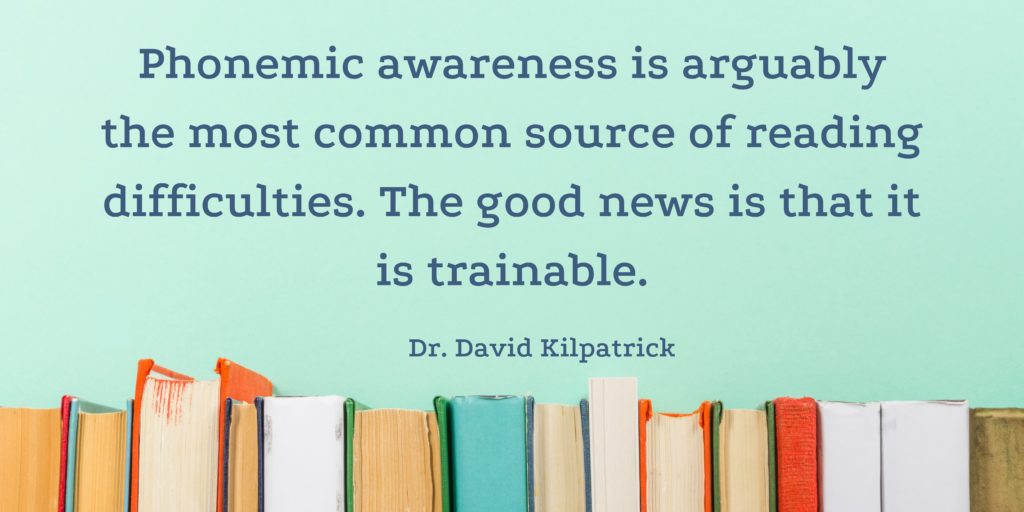
You can check out this free video of a September 2016 Reading League Event where David Kilpatrick speaks about Effective & Ineffective Interventions for Word Reading.
You can purchase the book by clicking here or reading more about my takeaways from this book in a post that I wrote called The Book That Changed the Way I Teach Reading: Equipped for Reading Success.
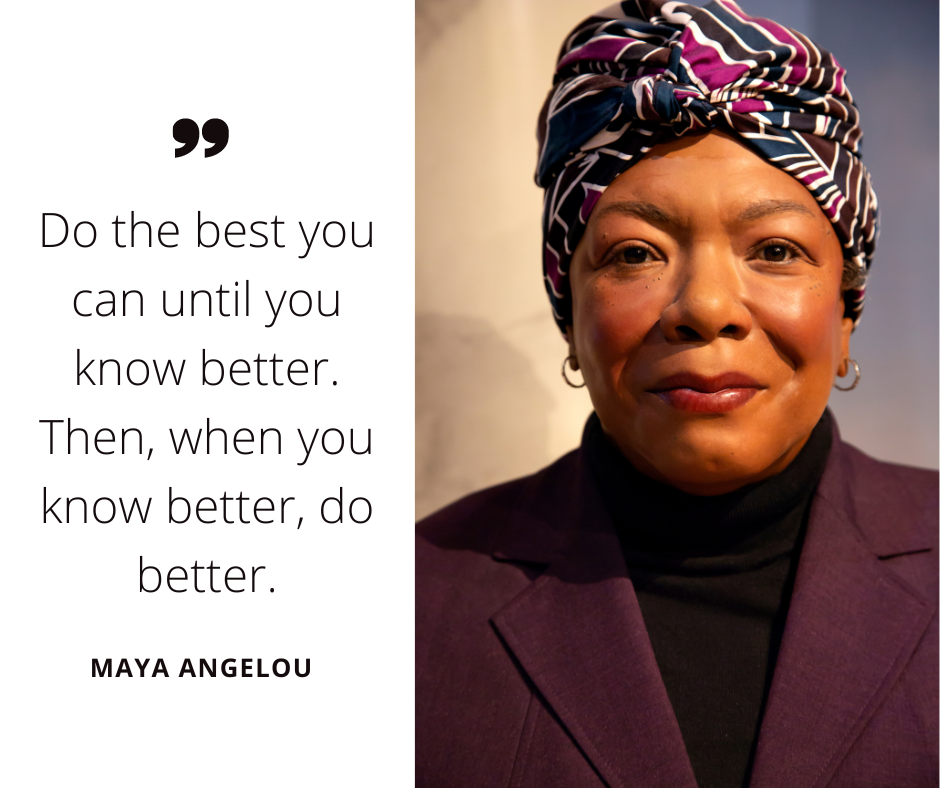
Final Thoughts
Teaching reading is hard. In fact, it is rocket science! I hope that these Science of Reading professional development resources help you get started!
What are your go-to PD resources for the Science of Reading? Drop a comment and let me know!
Pin for Later:
